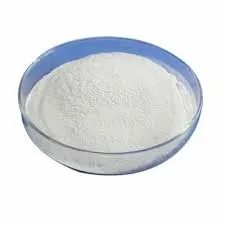
Dec . 21, 2024 08:46 Back to list
what is hydroxypropyl methyl cellulose
Understanding Hydroxypropyl Methyl Cellulose A Comprehensive Overview
Hydroxypropyl Methyl Cellulose (HPMC) is a multi-functional, non-ionic cellulose ether derived from natural cellulose. Its remarkable versatility allows it to be widely used in various industries, including pharmaceuticals, food, construction, and personal care. This article aims to elucidate what HPMC is, its properties, applications, and benefits.
What is Hydroxypropyl Methyl Cellulose?
HPMC is created through the chemical modification of cellulose, a naturally occurring polymer found in the cell walls of plants. The modification process involves substituting hydroxyl (–OH) groups of cellulose with hydroxypropyl and methyl groups, which enhances its solubility and functionality. The degree of substitution affects its properties, making HPMC available in various forms, each tailored for specific applications.
Physical and Chemical Properties
HPMC is known for several key properties
1. Solubility HPMC is soluble in water, forming a clear, viscous solution. Its solubility is influenced by the degree of hydroxypropyl and methyl substitution. 2. Thermal Stability It remains stable at high temperatures, making it suitable for a range of processing conditions.
3. Rheology Modifier HPMC acts as a thickening agent, helping to control the viscosity of solutions and suspensions, which is particularly useful in formulations requiring optimal flow properties.
5. Biocompatibility Being non-toxic and biodegradable, HPMC is safe for use in food and pharmaceutical products.
Applications of HPMC
what is hydroxypropyl methyl cellulose

1. Pharmaceuticals HPMC is widely used as an excipient in drug formulations. Due to its ability to control release rates, it is a popular choice for creating sustained-release tablets and capsules. Additionally, it is used as a binder in solid dosage forms and as a coating agent, enhancing the stability and appearance of pharmaceutical products.
2. Food Industry In the food sector, HPMC functions as a thickener, stabilizer, and emulsifier. It is commonly found in food items such as ice cream, sauces, and baked goods, where it improves texture and consistency.
3. Construction In the construction industry, HPMC is incorporated into cement-based products like tile adhesives, grouts, and joint compounds. It enhances workability, water retention, and adhesion, contributing to the overall performance of construction materials.
4. Personal Care Products HPMC is a popular ingredient in cosmetics and personal care items, including lotions, gels, and creams. Its film-forming and thickening properties improve the texture and stability of these products.
Benefits of Using HPMC
1. Versatility HPMC’s diverse functionalities across different sectors make it one of the most valuable cellulose derivatives available.
2. Safety Its non-toxic nature makes HPMC a favorable option in applications that require safety and compatibility with human health.
3. Environmentally Friendly Being a natural polymer, HPMC is biodegradable, aligning with the growing demand for sustainable practices across industries.
4. Efficiency HPMC allows for enhanced product performance, whether improving the release profile in pharmaceuticals or ensuring adequate viscosity in food products.
Conclusion
Hydroxypropyl Methyl Cellulose is a revolutionary compound that showcases the potential of natural polymers in modern applications. Its unique properties and versatility enable it to play a crucial role in various industries, enhancing product quality and performance. As the demand for safe and effective ingredients continues to grow, HPMC stands out as a key player, ensuring that products meet consumer expectations while adhering to safety and sustainability standards. Whether in pharmaceuticals, food, construction, or personal care, HPMC proves to be an invaluable resource.
-
Versatile Hpmc Uses in Different Industries
NewsJun.19,2025
-
Redispersible Powder's Role in Enhancing Durability of Construction Products
NewsJun.19,2025
-
Hydroxyethyl Cellulose Applications Driving Green Industrial Processes
NewsJun.19,2025
-
Exploring Different Redispersible Polymer Powder
NewsJun.19,2025
-
Choosing the Right Mortar Bonding Agent
NewsJun.19,2025
-
Applications and Significance of China Hpmc in Modern Industries
NewsJun.19,2025







